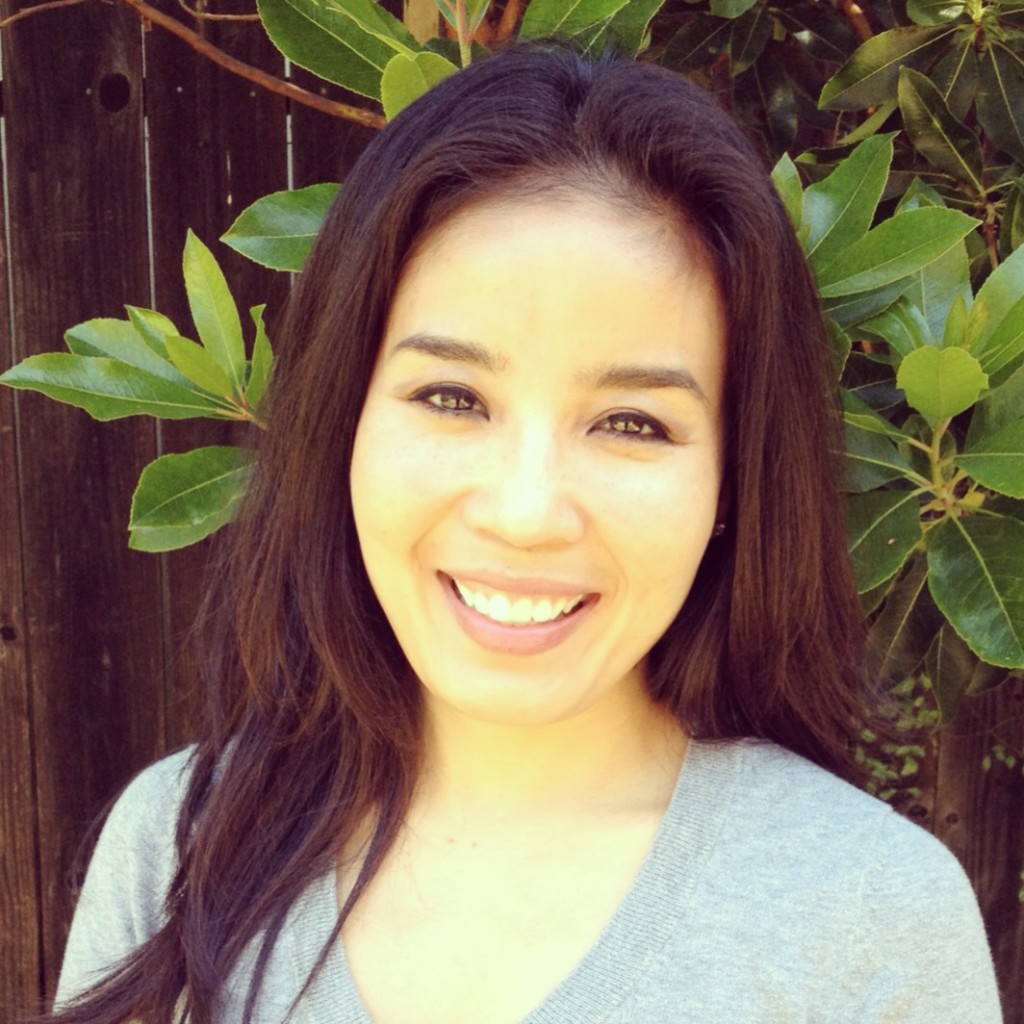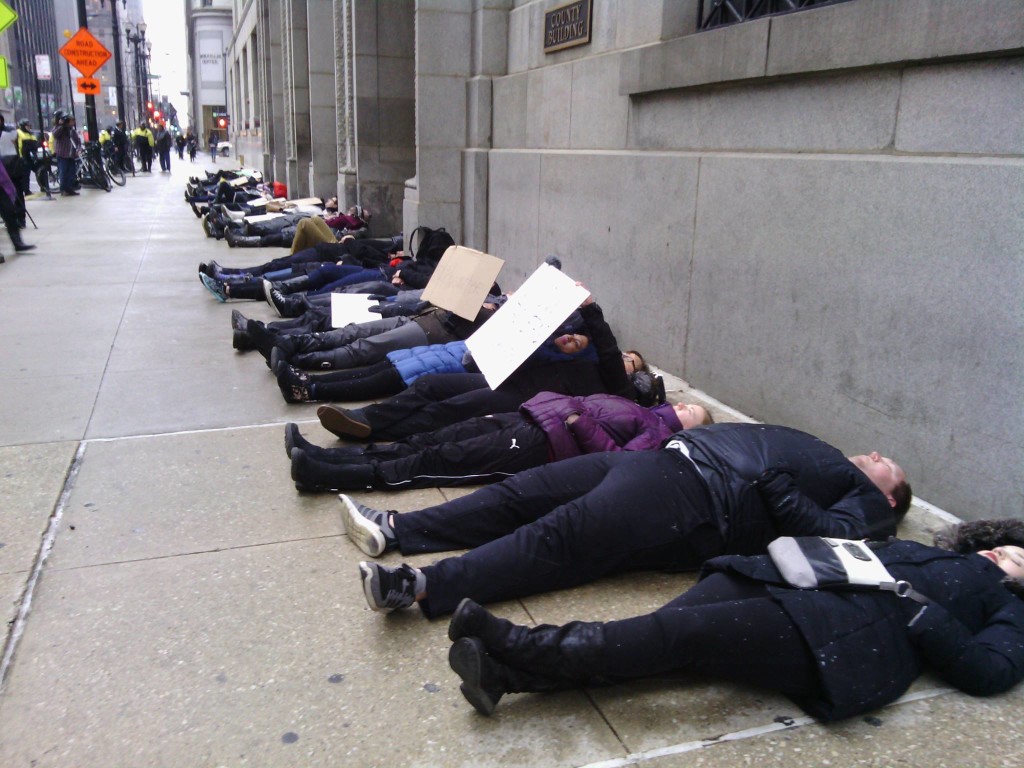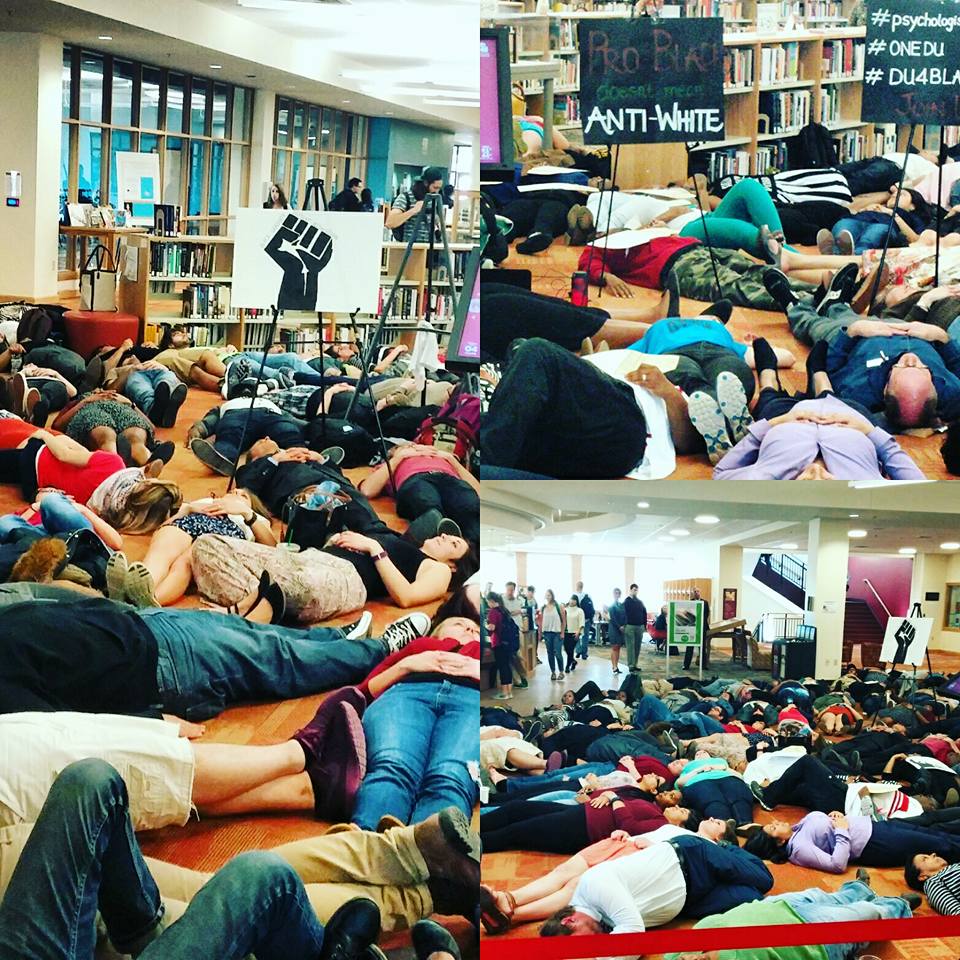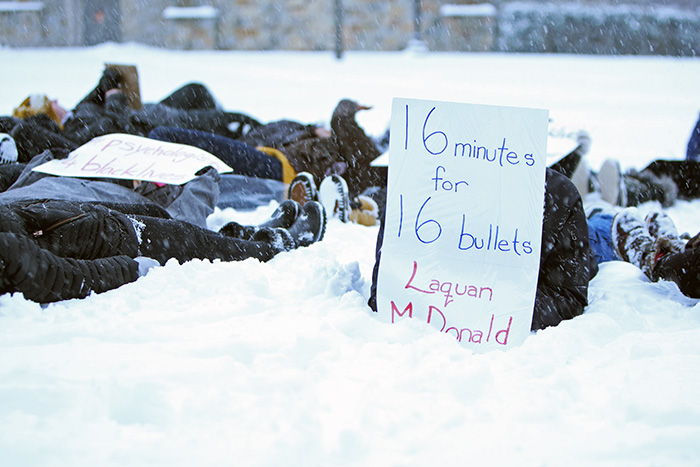
Adding your preferred pronouns to your email signature is one of many ways to advocate for and with transgender and gender-nonconforming individuals. (Image source: Dave Bleasdale on Flickr. Some rights reserved.)
For many of us, especially those of us who hold more privileged identities, a trip to the doctor might not be enjoyable but we can at least assume we will receive relatively respectful service. However, for individuals who identify as transgender and gender nonconforming (TGNC), seeking healthcare can be challenging and at times even dangerous.
According to a study conducted by Lambda Legal:
- Over one quarter (27%) of TGNC individuals have reported being refused healthcare due to their gender identity.
- 70% of TGNC people report having experienced explicit discrimination from healthcare professionals, including providers refusing to touch them or using excessive precautions, or blaming the individual for their health status.
- More than one in five people who identify as TGNC reported experiencing harsh or abusive language from healthcare providers.
- Nearly 8% of TGNC individuals stated they have experienced physically rough or abusive treatment.
- TGNC people of color and people who are low-income reporting higher rates of these forms of mistreatment.
These negative interactions with the healthcare system serve as a barrier that prevents TGNC people from receiving sufficient medical treatment, leading to higher rates of preventable illnesses. (For a more personal look at the importance of inclusivity and acceptance in the healthcare setting, check out this video by NYC Health and Hospitals.)
It is clear that there is an urgent need to improve inclusivity for transgender and gender nonconforming people, not only in society at large, but also specifically in the healthcare contexts where we may be working. However, sometimes it can feel daunting to take on something as big as the healthcare system, not to mention society’s attitudes toward gender identity in general.
So what can we do about that as students?
This year healthcare professionals, including psychology students, have worked together to lead several initiatives to address these disparities. For example, Washington, DC recently passed the LGBTQ Cultural Competency Continuing Education Amendment Act that will require cultural competency training for all healthcare providers practicing in Washington DC on topics of sexual orientation and gender identity. It is believed to be the first bill of its kind in the nation to pass, but similar bills have been proposed in other states. Does your state have a bill like this in the works? Connect with your local government and LGBT advocacy organizations to find out!
In another effort that we all can directly participate in, Medical students at the University of Vermont and the Northeast Medical Student Queer Alliance are leading the charge on a simple but powerful way to promote greater awareness and inclusion for TGNC individuals. In honor of LGBTQ Health Awareness Week (Mar. 28-Apr. 1, 2016), they created the hashtag “#pushforpronouns” and are encouraging everyone to add their preferred pronouns into their email signature. (See what kind of traction #pushforpronouns is getting on Twitter.)
My email signature now reads:
“University of Wisconsin – Madison
Counseling Psychology Doctoral Program
APAGS Subcommittee Chair:
Committee on Sexual Orientation and Gender Diversity
jzbenjam@gmail.com
Pronouns: She/her”
By including our preferred pronouns in email signatures, we normalize asking about the pronouns of others and volunteering our own pronouns. This can help create a more inclusive atmosphere for individuals who do identify as TGNC by indicating we are accepting of all gender identities and aware of the importance of using preferred pronouns. The direct presentation of pronouns may help challenge assumptions about the gender binary by encouraging email recipients in our communities and workplaces to think and talk about gender pronouns. In this way a small action, like adding our preferred pronouns to our email signature, may be one step along the pathway to creating a more inclusive and accepting society and healthcare system for all people.
Join us in the #pushforpronouns!







 This has been an inspiring journey for me and I thank you all for your collective efforts in making this happen. We staged a coordinated event at 20 schools, across 12 states, with hundreds of student and faculty participants. You should all be proud of your efforts! Of course, this is just the first step in the #psychologists4blacklives movement and I hope that together we can keep the momentum going. We are planning to be at the
This has been an inspiring journey for me and I thank you all for your collective efforts in making this happen. We staged a coordinated event at 20 schools, across 12 states, with hundreds of student and faculty participants. You should all be proud of your efforts! Of course, this is just the first step in the #psychologists4blacklives movement and I hope that together we can keep the momentum going. We are planning to be at the 
 Schools throughout the country uploaded their pictures as well! Die-In participants at Virginia Commonwealth University, Boston College,
Schools throughout the country uploaded their pictures as well! Die-In participants at Virginia Commonwealth University, Boston College, 
 Participating Schools:
Participating Schools:

 Samira Paul is completing her second year as a doctoral student in clinical psychology at the American School of Professional Psychology at Argosy, Washington DC. She is the Diversity Chair for the
Samira Paul is completing her second year as a doctoral student in clinical psychology at the American School of Professional Psychology at Argosy, Washington DC. She is the Diversity Chair for the 